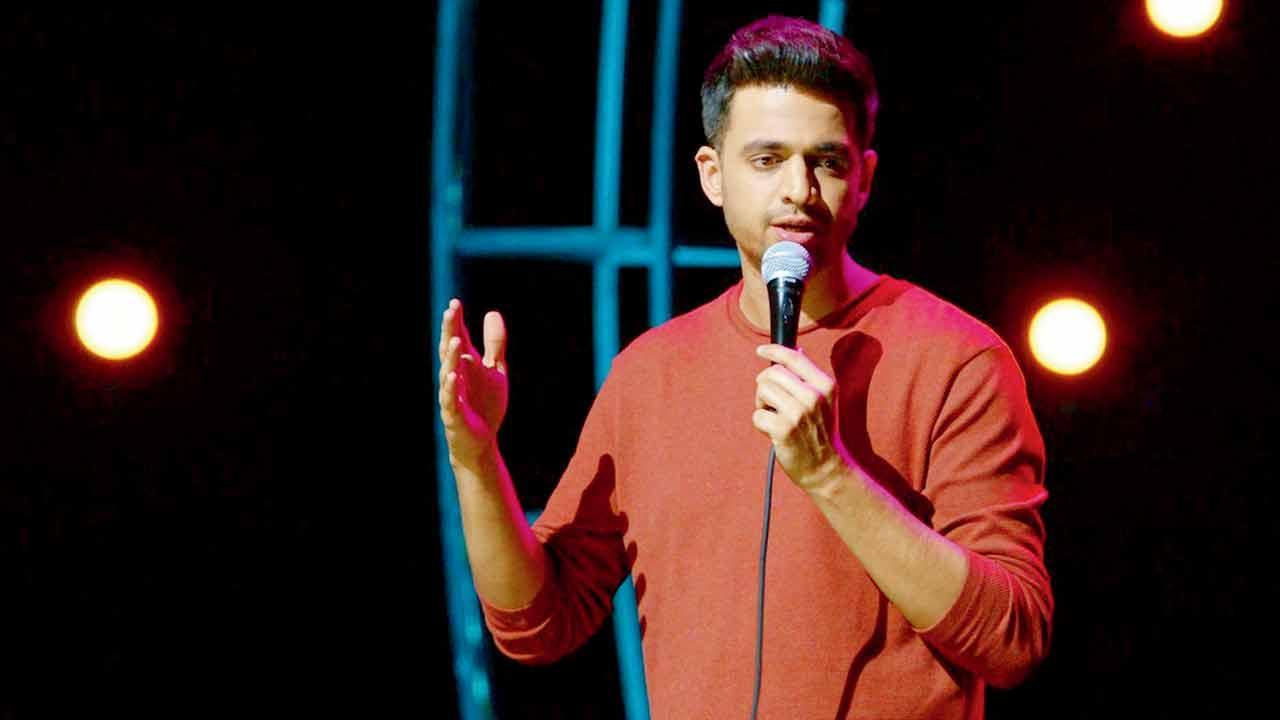While all of his jokes struck a chord, Rohan Joshi, creator of Wake N Bake -- among the nominees in the Best Non-Fiction category at the mid-day and Radio City Hitlist OTT Awards -- on creating a refined version of the comic special over seven months and several test gigs

Rohan Joshi
Rohan Joshi is privileged. It's a fact that he abundantly reiterated in his 2020 Amazon Prime Video special, Wake N Bake, and does so once too often, during this conversation. But attributing his success to his favored social standing could be a lazy assumption. His comic skills apart, he makes evident that he is worthy of attention for more reasons than one. The journalism student's published editorial pieces make for reads that are as engaging as his comic sketches ("Writing is the most crucial skill for a comedian," he says), and his sharp business acumen shines through when he gets candid about failing as an opening stand-up comedian for a Vir Das concert, or the lessons learnt from writing comic scripts for clients.
ADVERTISEMENT
Rather unfiltered when analyzing the world, Joshi says it was his desire to earnestly reflect his own life that formed the crux of Wake N Bake, among the nominees in the Best Non-Fiction category at the mid-day and Radio City Hitlist OTT Awards. "Regardless of when I looked back at the show, I wanted it to be an accurate reflection of what I had gone through at the time. I started my career in comedy my late-20s, and am in my late 30s, now. So, I wanted the show to reflect my change in perspective. I strayed from political references because I didn't want anyone to look at it 10 years later and wonder what was being referred to," Joshi tells mid-day.
Reactions from the umpteen shows that were held for smaller groups from February to October enabled him to condense the 70-minute piece into a 55-minute comprehensive special. And while the iterations implied that he knew the final product held promise, Joshi admits that not all material finds favour. "Knowing that not all of your material will succeed is an occupational hazard. That is why we head on tours and test it before chipping away and creating better versions. There are moments when you are on stage, and no matter how much you hope [a joke] works, people don't buy it. You need to have backups, and, more importantly, acknowledge that the joke didn't work. The audience isn't stupid. They realise that the room has been silent for five minutes. Acknowledging it will get them back on your side."
With an OTT giant taking his content across countries, Joshi is aware of the opportunities afforded to him. But doesn't a stand-up comic act, by its very nature, demand the presence of a live audience? "Not particularly. Because even a viewer watching it at home will do so as though he were part of the audience. His laughs would be synchronised with those of the audience. In fact, as a comedian, I could do a look-to-camera to enhance [a joke], or even add a Marvel-like post-credit scene. But, I also had to ensure that my best bit wasn't material that can cause issues due to copyright infringement. You also need to have the material legally verified. Events in newspapers are reminders of what is possible, as far as freedom of speech is concerned."
 Subscribe today by clicking the link and stay updated with the latest news!" Click here!
Subscribe today by clicking the link and stay updated with the latest news!" Click here!






